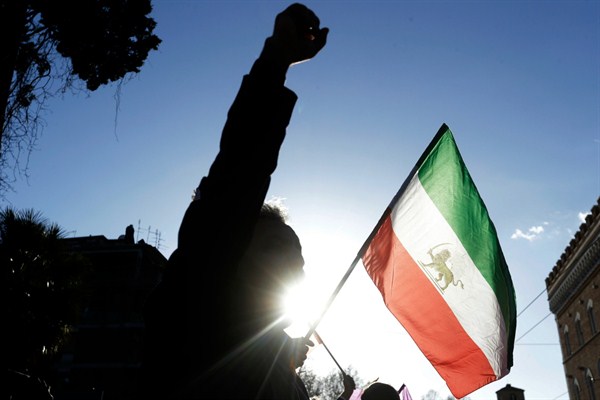The popular demonstrations that erupted in Iran in late December, the largest since the Green Movement protests in 2009, have created a pretext for the Trump administration to renege on the nuclear deal, which it has tried to nix throughout its first year in office. But breaking the 2015 agreement by piling on sanctions pressure would likely have only a minor economic effect on Tehran, especially in the short term, while undermining the very protesters the administration has vocally supported. The threat of new U.S. sanctions would also limit American leverage in pursuing regional stability and nonproliferation.
Media coverage has documented the protesters’ anger with Iran’s economic circumstances. The country needs an estimated $100 billion of annual infrastructure investment to rebuild its battered economy and boasts an unemployment rate of around 12.5 percent. Some demonstrations, in targeting sluggish growth and corruption, have also zeroed in on Iran’s spending abroad in pursuit of its geopolitical aims. Iranians are right to be angry about the government devoting resources to militant groups and terrorist proxies in Lebanon, Syria and Yemen when work is needed at home.
Iran’s power projection in the Middle East has not only sapped spending that would have directly benefited the Iranian population. It has also hobbled the country’s reintegration into the global financial system. Due to insufficient regulatory controls relating to terrorist financing and money laundering, Iran is on a blacklist for the Financial Action Task Force, the global standard setter for these issues, which makes it harder for Iran to attract foreign investment. The nuclear deal didn’t change that status, and other sanctions still in place are keeping a check on Tehran’s re-establishment of economic links abroad.

